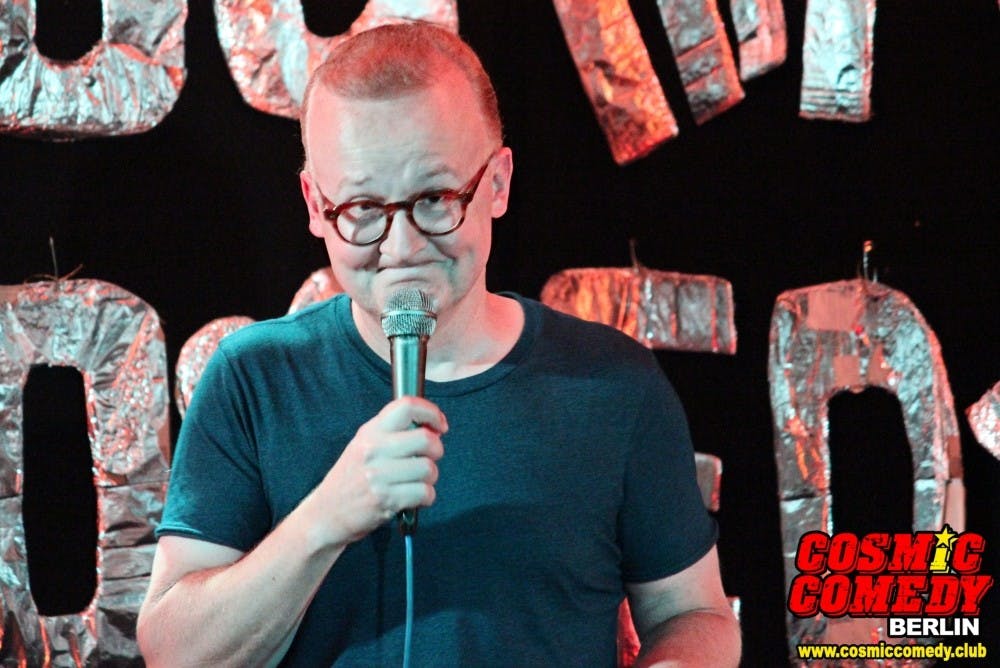American University professor Doug Hecox explored Europe this summer for his comedy tour and spent four months rewriting his last 30 years of material for 30 minutes of internationally-appropriate material.
When he’s not working as the media relations director for the Federal Highway Administration or teaching a Writing for Communications course at AU, Hecox uses comedy as a creative outlet.
In both Vienna and Berlin, Hecox performed for diverse audiences of native Germans and Austrians, English-speaking expats and tourists from around the world.
“I’m hopeful that [the tour] will inspire me to be a little bit more culturally aware and culturally sensitive,” Hecox said. “Travel is educational, but especially so when you have to entertain international people in their own country.”
Native German-speakers cannot say the English word “squirrel” and vice-versa for English-speakers, Hecox said. So, he created five minutes of material by “just by getting everybody to make fun of each other for something so simple.”
Hecox said his comedy performances are a “necessary vent.”
“Being up there telling hilarious stories about my personal life or the world in general, they frown on that in traditional jobs, and it’s certainly not something I can or should do in the classroom,” Hecox said.
While AU doesn’t play a role in his comedy, it has been a testing ground for material in the past, when Hecox performed in the Tavern in 2003.
According to Hecox, stand-up comedy made him better at his day jobs by allowing him to focus his energies entirely on meaningful work rather than cracking jokes at the water cooler or in front of classes. Additionally, Hecox said comedy allowed him to hone his writing and communication skills.
“Stand-up comedy is definitely an act of writing,” Hecox said. “It’s writing and it’s a lot of editing. It’s careful word choice … But obviously standing up in front of a group of total strangers and speaking is an important skill as well.”
Hecox recommends finding a creative outlet to exercise one’s writing and public-speaking skills, which, if well developed, can be used in almost any career field, he said.
“In every industry, at some point, you’re going to have to communicate a complicated idea in a simple, memorable fashion to someone you may not know … overcoming cultural barriers, language barriers and knowledge barriers,” Hecox said.
Correction: This article has been corrected to reflect that Hecox works for the Federal Highway Administration, not the Department of Labor.





